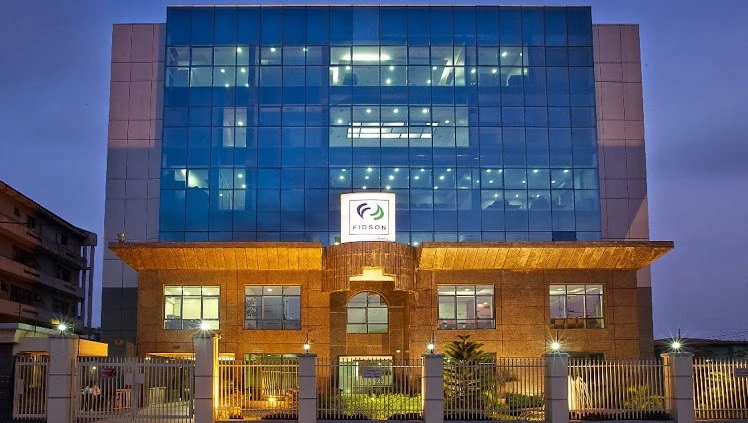In a carnival-like atmosphere, national and global tuberculosis champion and Nigeria’s first lady, Oluremi Tinubu celebrated the 2025 World Tuberculosis Day in a rural community in Abuja. But despite government’s spirited efforts, investigations reveal the disease remains a major scourge among the poor, sparking fears on meeting UN deadline. Seun Akioye reports
There were almost two thousand people at the venue of the celebration of 2025 World Tuberculosis Day at SaukaVillage, Waru District in the Federal Capital Territory. While some may have heard that Nigeria’s first lady, Oluremi Tinubu was coming and may want to see her, others came at the promise of a free tuberculosis screening and medical checkup.
“I came because of this cough,” Ibrahim, a herdsman andlifelong resident of the community said. For more than two weeks, he has had a persistent cough and had been treating himself with herbs which have yielded no positive results. “I hope they will be able to heal me here today, especially as it will be free,” he said and broke into a smile.
It was the commemoration of the World Tuberculosis Daywith the theme: Yes! We can End TB: Commit, Invest, Deliver and Nigeria’s first lady had decided to celebrate with the vulnerable people of Sauka village. This year, shecame wearing her badge as global and national tuberculosis champion and the largest individual donor to the campaign against tuberculosis.
A Disturbing Trend
For Nigeria, there is little to celebrate as available data points to a grim situation. According to the World Health Organisation (WHO), Nigeria has the highest tuberculosis burden in Africa and 6th globally with an estimated 467,000 people having active infections. This staggering number accounts for about 4.6 % of the global burden. Moreover, the country also has the highest burden of drug resistant tuberculosis and HIV- related tuberculosis.
In 2023, Nigeria reported over 361,000 tuberculosis cases which is a 26% increase compared to 2022. Out of this, 9 % of reported cases were in children. Annually about 125,000 people die from tuberculosis.
“This is unacceptable,” Mrs. Tinubu said in a speech packed with fire and fury. “This is a national emergency that needs to be addressed. So many of our brothers and sisters still suffer from this disease in silence due to stigma, lack of awareness and the ignorance of not visiting the healthcare facility on time,” she said.
Mrs. Tinubu told the residents of Sauka that the President is committed to the wellbeing of the people “ We are reminded of the devastating impacts of tuberculosis on our communities, yet it is a day of renewed hope and action. As part of the Renewed Hope Agenda, President Bola Ahmed Tinubu is passionate about the health and well-being of Nigerians. The ministry of Health is committed to eradicating TB through strategic investments in diagnostics, treatments and prevention,” Mrs. Tinubu promised.
The Minister of State for Health and Social Welfare Dr. Adekunle Salako agreed with her saying tuberculosis is not a death sentence and Nigeria is committed to eradicating it by 2030.
“The President has directed the renovation of 10,000 Primary Health Centres (PHCs) and 120,000 health workers are being trained and we are expanding tuberculosis screening centres in all our primary health care centres across the country,” he said. Then Mrs. Tinubu donated N1billion n from the renewed hope initiative towards the tuberculosis campaign.
Too Little, Too Late
As the fanfare continues in Sauka village, Ebuka Edochie, diagnosed of tuberculosis in January 2025 sat alone in his house at Jeje village in Karu local government area of Nasarawa state wondering if he would have his drugs for the following week.
Until January, he has never heard about the disease. “I was coughing for over a month, I used all the drugs I could find until I went to the General Hospital Karshi where I was told I had tuberculosis. I was very scared because people said it kills. I do not want to die so I started taking the medication faithfully for two months now,” Edochie said.
At 26 years, Edochie lives alone, smokes cigarette and marijuana and engages in other risky behavior. “ I have stopped,” he said, curbing two fingers together and putting them in his mouth to indicate smoking. “I don’t even share anything with anybody anymore. The drugs are working and I have gained some weight,” he said with a smile.
Some neighbors checked in on him, wary of his visitors.“They are from the hospital,” he told them. For Edochie, getting his daily dose of drugs which has been prescribed for six months is a worry. “I heard there are no drugs now, this one will finish on Wednesday and if we don’t have then, I will miss the dosage.”
Edochie has a right to be worried. Since January, there has been an acute shortage of tuberculosis drugs supply in the FCT. Those already on treatment have missed their dosage while new cases have no drugs to start treatment.
“We don’t have drugs,” Samuel (not real name), one of the health workers at Karshi General Hospital said. “They keep postponing and there are cases on the ground that we have to let back into the communities. Those ones will go and infect other people.” Other staff at the hospital identified the defunding of United States Agency for International Development (USAID) as cause and Nigeria currently does not manufacture the drugs locally.
“Every month, we have at least 50 presumptive cases presented, these people have gone back to their communities and it is possible they are infecting others,” Safira, a community health mobiliser volunteer said.
Tuberculosis spread faster in rural communities where people share personal items and live in close proximity. In Jeje village, this includes sharing a cup of locally brewed gin among several people and for the youth, sharing a wrap of marijuana. “I know I got it from sharing cigarettes and marijuana,” Edochie said.
But the most difficult part of Samuel and Safira’s job is contact tracing of confirmed cases especially in hard-to-reach communities. “We need motorcycles to get to most places, even though we are reimbursed our travelling expenses, we had to fund it from our pockets and this can be discouraging,” they said.
But the Project Manager, Tuberculosis, Leprosy and BuruliUlcer Control Programme in the FCT, Dr. GarbaAbdulrazak said the expected drugs are now available and would be distributed to every health centre in the FCT.
“We have the drugs now and we are distributing them,” he said while reinforcing that treatment of tuberculosis is free and residents of the FCT should dial 3340 to report a case. “We have been announcing the number since last year, it is everywhere but people are not catching up, we have to intensify our campaign to let people know about it.”
But the National Tuberculosis, Buruli Ulcer and Leprosy Control Program (NTBLCP), umbrella body for the eradication of the disease in Nigeria said it is doing everything to end the disease including drafting the National Strategy Plan 2021-2025.
Dr. Jamila Amin said: “Marginalised communities face many barriers that many of us don’t experience. The NTBLCP is committed to intervene in three strategic ways; Community Systems strengthening where power is given to the community to monitor cases, massive deployment of social behavior change materials and community case finding intervention through house to house tracking.”
Amin believes if communities and vulnerable groups are involved in the campaign, Nigeria would eradicate the disease and meet the United Nation deadline of 2030.
Will Nigeria Eradicate Tuberculosis?
Hanatu Bitrus, a tuberculosis community social mobilisation officer in the FCT believes the disease could be eradicated, at least in Abuja. “The challenge is not much in Abuja because we go for community outreaches every two weeks and any new cases are quickly escalated,” she said.
But across the country, tuberculosis cases are not easily dismissed. For one, Nigeria depends on donor supply of the drugs which costs about N50, 000 in the private pharmacies. And because the diseases usually affect thepoor and vulnerable, they could only depend on the free drugs from government.
Even though government has promised to revamp 10,000 PHCs, a survey in Karu and Karshi area of the FCT reveal that only the two general hospitals have treatment facilities while the PHCs do not.
Inadequate funding from government is also a major hindrance, while government has provided less than 10 % of funds needed; international donors like the Gates Foundation, USAID, Global Fund have been responsible for the larger percentage.
“This is the reason we have not been able to eradicate this disease because we don’t have a sincere government that can invest in the research for drugs and treatments. Everything they say is political talks,” Safira said.
Many of the health workers present at Sauka village listened to Mrs. Tinubu and other officials made promises and reached for their bags of salt. “ It is too little, too late,” a health worker who does not want to be named dismissed the N1billion donation from Mrs. Tinubu as inadequate.
“This cannot be enough, the major problem is nutrition. When the patient does not have good food to eat the drugs won’t work.
“There should be a stipend like N20,000, given to these patients every month to enable them buy supplements that would build their immunity as they use the drugs. And then, we need to eradicate poverty as you will see it is only the poor that suffers this disease,” she said.
The outreach in Sauka village had over 300 residents registered for tuberculosis screening while more than 20 presumptive cases presented. Babangida Gambo stood beside Kande Gambo, his 80 year old mother who was coughing relentlessly. He insisted a specimen from her should be taken even though the X-ray reveals she is not a presumptive case.
“She has been coughing like this for more than two years and we have spent over N2million but no solution. When I heard about this, I had to bring her from Kafanchanthinking that the problem will be over today but they told me there is no TB,” Babangida said in disappointment.
Kande sat in silence and in pains. Around her, patients went through the whole process of screening. OyeyemiHadiza, said she has had all the symptoms of tuberculosis for over two weeks and she is hopeful to get free treatment if confirmed.
Bitrus took the whole scene in and smiled. “ This is why we do community outreaches, the poor and vulnerable have no hope but us.”
* Akioye, an award winning journalist and strategic communications specialist, serves as the Manager of Social Mobilisation at ActionAid Nigeria, where he coordinates efforts to train activists, human rights defenders, and journalists on organising and sustaining social movements for positive change. He is dedicated to uncovering critical societal issues and his commitment to fostering positive change through strategic communication has solidified his reputation as a leading figure in Nigerian journalism and advocacy.





